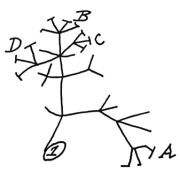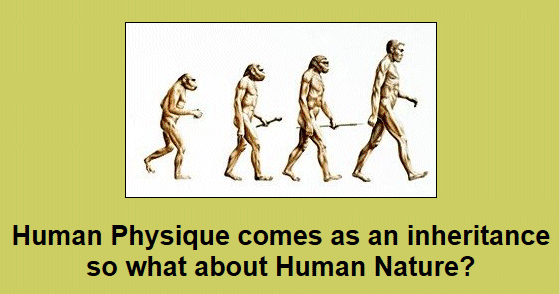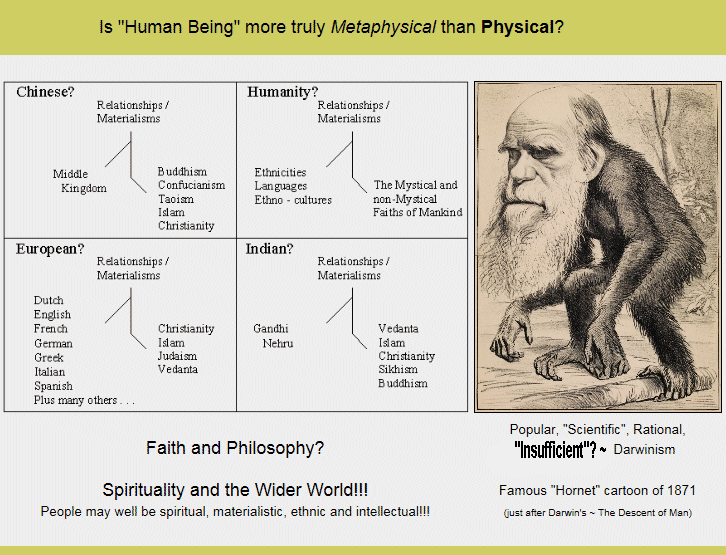Charles Darwin quotations and quotes
In October 1838, that is 15 months after I had begun my systematic enquiry, I happened to read for amusemnent 'Malthus on population', and being
well prepared to appreciate the struggle for existence which everywhere goes on from long-continued observation of the habits of animals
and plants, it at once struck me that under these circumstances favourable variations would tend to be preserved and unfavourable ones to be
destroyed. The result of this would be the formation of new species.
As many more individuals of each species are born than can possibly survive; and as, consequently, there is a frequently recurring struggle for existence, it follows that any being, if it vary however slightly in any manner profitable to itself, under the complex and sometimes varying conditions of life, will have a better chance of surviving, and thus be naturally selected. From the strong principle of inheritance, any selected variety will tend to propagate its new and modified form.
In the survival of favoured individuals and races, during the constantly-recurring struggle for existence, we see a powerful and ever-acting form of selection.
As many more individuals of each species are born than can possibly survive; and as, consequently, there is a frequently recurring struggle for existence, it follows that any being, if it vary however slightly in any manner profitable to itself, under the complex and sometimes varying conditions of life, will have a better chance of surviving, and thus be naturally selected. From the strong principle of inheritance, any selected variety will tend to propagate its new and modified form.
In the survival of favoured individuals and races, during the constantly-recurring struggle for existence, we see a powerful and ever-acting form of selection.

There are many entertaining and instructive quotations about, or attributable to, Charles Darwin:-
For instance, as a boy of sixteen his father said to him:-
"You care for nothing but shooting, dogs and rat-catching, and you will be a disgrace to yourself and all your family."

Darwin was keenly interested in Natural History as a young man and his Autobiography mentions one particular beetle hunt in detail:-
"I will give a proof of my zeal: one day on tearing off
some old bark, I saw two rare beetles and seized one in each
hand; then I saw a third and new kind, which I could not bear to
lose, so that I popped the one which I held in my right hand into
my mouth. Alas it ejected some intensely acrid fluid, which burnt
my tongue so that I was forced to spit the beetle out, which was
lost, as well as the third one".

In biological and evolutionary science a phylogenetic tree or evolutionary tree is a tree showing the evolutionary relationships among various biological species are believed to have a common ancestor.
 Perhaps the earliest example of a phylogenetic tree or evolutionary tree was actually devised by Charles Darwin. His
approach can perhaps be illustrated by this famous Tree of Life sketch from his Notebook B dating from 1837-8:
Perhaps the earliest example of a phylogenetic tree or evolutionary tree was actually devised by Charles Darwin. His
approach can perhaps be illustrated by this famous Tree of Life sketch from his Notebook B dating from 1837-8:
Charles Darwin's early evolutionary theory insight of how a branching tree-like genus of related species might originate by divergence from a starting point (1) to effectively establish related species at such notional points as A, B, C and D.
There is an accompanying text annotation that reads:-
I think
Case must be that one generation then should be as many living as now. To do this & to have many species in same genus (as is) requires extinction.
Thus between A & B immense gap of relation. C & B the finest gradation, B & D rather greater distinction. Thus genera would be formed. — bearing relation (page 36 ends - page 37 begins) to ancient types with several extinct forms.
From Darwin's Notebook B now stored in Cambridge University library.


Does Darwinian Evolution offer much in terms of explaining Human Nature?
Attempts to find answers to this question seems to raise deep, but interesting, issues associated with Human Existence.
To what extent does Darwinian Evolutionary Theory "Explain" Human Nature?
Darwin's theorising on evolution took place over more than twenty years!
Such content as the following selection, dating from 1837 and the earlier days of his theoretical deliberations on "that mystery of mysteries the origin of species", is to be found in Darwin's "Notebook B" and shows that he expected his theory to cover behavioral as well as physical evolution:-
"My theory would give zest to recent & Fossil Comparative Anatomy: it would lead to study of instincts, heredity, & mind heredity, whole metaphysics" ...
The Theory of Evolution, (as considered to be applicable to Humanity), has traditionally tended to focus on the physical!
Darwinian Science and Metaphysics

Whilst this present Age-of-the-Sage page content makes no attempt to address questions of whether the origins of Human Nature
are
~ "Natural? or Divine?" ~
our visitors can nevertheless find key insights on our site from such reliable authorities as:-
The Great Faiths - Plato & Socrates - Shakespeare
that give convincing support to such a "Tripartite" view of Human Nature!!!
~ "Natural? or Divine?" ~
our visitors can nevertheless find key insights on our site from such reliable authorities as:-
The Great Faiths - Plato & Socrates - Shakespeare
that give convincing support to such a "Tripartite" view of Human Nature!!!

It is widely known that Plato, pupil of and close friend to Socrates, accepted that Human Beings have a " Tripartite Soul " where the individual Human Psyche is noticeably composed of three aspects - Wisdom-Rationality, Spirited-Will and Appetite-Desire.
It is less widely appreciated is that Great World Faiths, and William Shakespeare, also effectively see "Spirituality" as being relative to "Desire" and to "Wrath".
On the basis that persons browsing the web cannot be expect to search out things that they do not readily appreciate "as being there to search for" we have assembled effective endorsements, from Plato & Socrates, World Faiths and Shakespeare, to a "Tripartism" of Wisdom-Rationality, Spirited-Will and Appetite-Desire on this link page:
